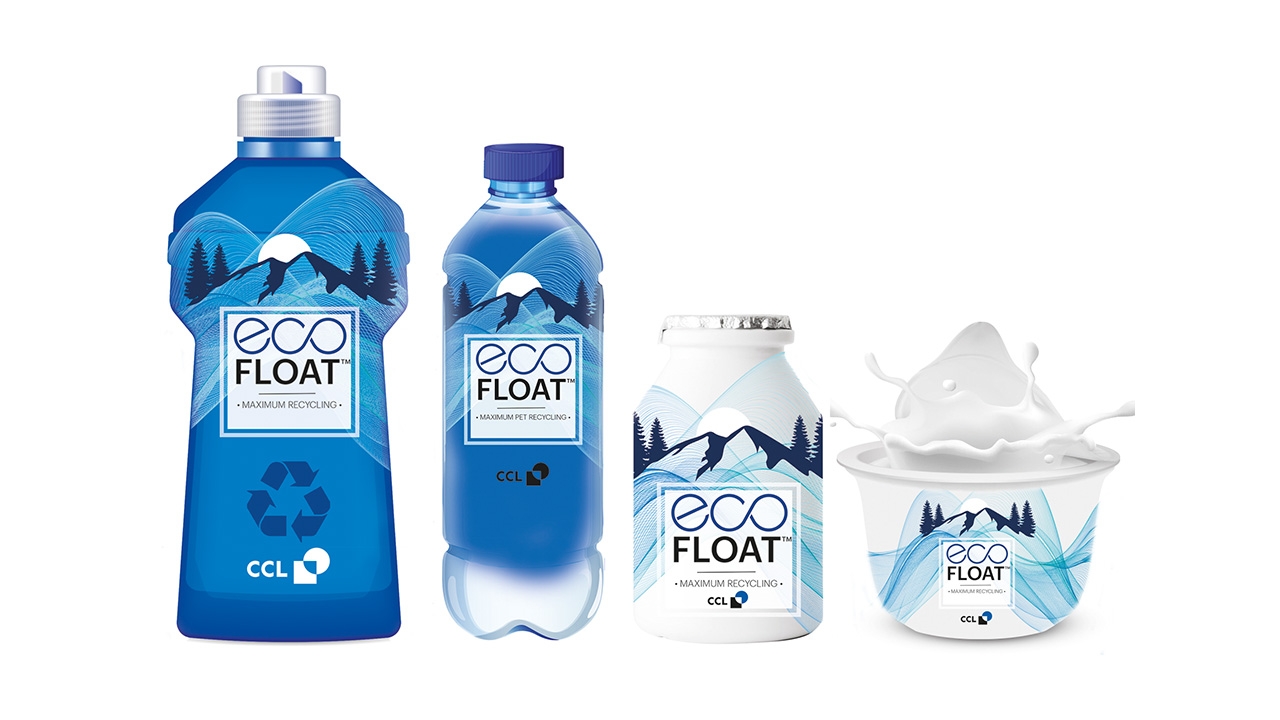CCL extends EcoFloat range of floatable polyolefin shrink sleeves
EcoFloat shrink sleeves support the recycling of rigid packaging in the PET, HDPE, and PP recycling streams.

CCL Label, one of the leading producers of labels and packaging, has extended its range of low density, floatable polyolefin (PO) shrink sleeve that is a sustainable alternative for existing materials that are detrimental to recycling.
‘We are proud to share our extended range of floatable shrink sleeves that work in established PET, HDPE and PP waste streams,’ said Reinhard Streit, vice president and managing director for food and beverage at CCL Label. ‘We can now offer our local and multinational brand customers several options – from a high shrink version to a thinner version to a white version that is ideal for light-sensitive products like dairy, vitamins and supplements.’
To enable more mechanical recycling of post-consumer packaging, eco-design or design for recycling will be essential, said CCL Label. As of today, there are still a lot of sleeve labels in the market that cause problems in PET recycling and are flagged by organizations like the Association of Plastic Recyclers that have created a comprehensive Design Guideline.
‘EcoFloat sleeves made from low-density material are an ideal alternative. They automatically separate from the PET flakes in the sink/float process step at recyclers and float to the top of the washing tank – while the heavier PET flakes sink to the bottom. This density separation leads to very clean PET flakes that can be recycled back into new bottles – closing the loop,’ commented Marika Knorr, head of sustainability and communication at CCL Label.
‘In recent years, brand owners have gravitated towards more complex bottle shapes. This calls for a sleeve that has a high shrink rate so it can contour to the bottle seamlessly. We have just released a new version where the shrink is well above 70 percent – which makes even difficult bottle shapes work with shrink sleeves,’ added Aaron Henneger, sales director for North America at CCL Label.
While the standard EcoFloat sleeve is 50 microns, a thinner 45 micron version is now also available. This downgauged sleeve material is suitable for many bottle and container shapes and offers the benefits of efficient material usage and a lower carbon footprint.
Also new on the market is the new EcoFloat White technology, which enables greater recyclability for dairy packaging and other light-sensitive products.
‘We expect it to be a game changer,’ said Henneger. The dairy industry often uses opaque white bottles to protect products like milk, yoghurt, and probiotic drinks. However, these white bottles are rarely recycled back into food-grade applications because they contain colorants, so they leave the packaging loop or are downcycled.
‘Shifting from an opaque bottle to a clear PET bottle with an EcoFloat White shrink sleeve provides product protection and increases the amount of clear PET that can be reclaimed for bottle-to-bottle recycling. It is our goal to support this with a functional product decoration.’
Stay up to date
Subscribe to the free Label News newsletter and receive the latest content every week. We'll never share your email address.

